February 10, 2026
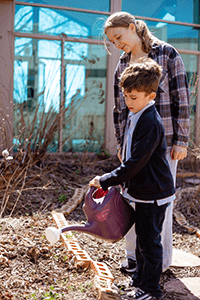
At Mounds Park Academy, education isn’t defined only by milestones or standout achievements. It’s shaped in the everyday moments—small, often quiet experiences that influence how students grow, learn, and see themselves.
These moments happen in classrooms, hallways, rehearsals, and conversations: perseverance through uncertainty, curiosity sparked by a thoughtful question, shared laughter that deepens a sense of belonging. They may pass quickly, but their impact lasts.
Today, we’re pausing to celebrate those moments. The ones that don’t always make headlines but matter deeply over time. Together, they reflect MPA’s commitment to nurturing the whole student—encouraging confidence, curiosity, connection, and thoughtful engagement with the world.
Recognizing Those Little Moments
We asked faculty, staff, and students to share some everyday moments with us. Here are just a few that we’re pausing to recognize across the Mounds Park Academy campus:
- “Fourth graders are going above and beyond in music class with Ms. Gallick as they learn the melody of Hedwig’s Theme from Harry Potter on the glockenspiel for the Lower School Music and Art Show. Many have figured out the piece by ear—demonstrating curiosity, confidence, and a growing musicianship—and are being led by an exceptional music teacher.”
- “Leilani is showing remarkable courage and perseverance as a brand-new student at MPA. A mid-year start can be difficult for any student, and Leilani is working hard to make the transition as smooth as possible. Even as she finds her footing, she is already seeking out and building friendships and connecting with trusted adults to walk beside her on her journey. Take heart, Leilani! It will get easier, day by day.”
- “I am in Constitutional Law this semester with Mr. Vergin, and because the class is small, we’re able to have thoughtful discussions about landmark Supreme Court cases. Daily readings from a college-level Constitutional Law textbook prepare me for class and give me a preview of what we’ll be discussing. Last week, the class split up to brief five cases, with two people assigned to each. I worked on Sherbert v. Verner, a case involving the free exercise clause of the First Amendment, and I really enjoyed the research and writing—it helped me develop a more complex understanding. When we came back together, we discussed all of the cases as if we were Justices on the Supreme Court. I loved exploring free exercise and expression, and it was especially interesting and insightful to talk about something that resonates with current events.”
- “Maddie is an amazing leader of the Middle School Gymnastics Club. She is supportive and encouraging, meets each participant at their level, and values every attempt. She comes prepared with thoughtful session plans and shows compassionate leadership with a no-nonsense understanding of what her clubmates can accomplish—enabling them to try new skills (and sometimes succeed, too). All amazing things!”
- “I am so impressed with how the new kids on the speech team go from not even understanding their category to competing in big tournaments alongside seasoned competitors. Their willingness to jump into the deep end reflects both the confidence MPA has given them and the impact of stellar coaching. Some of these kids literally win—so it’s not exactly quiet—but the work and dedication that lead to those moments are almost invisible.”
- “Sophia and Rosalie have been hugely supportive, expressively friendly, and wonderfully inclusive peers to a new student. From smiling faces and open arms when she approaches them to kind words and easygoing camaraderie, their kindness did not go unnoticed. The fact that they helped a new student acclimate and feel a sense of belonging in her first few days will have ripple effects for a long time. Love it!”
- “Keegan and Conlin are showing courage, vulnerability, and perseverance as they work through a difficult, multi-step English assignment. Both are firmly taking the reins of their TED Talk projects—working in a focused manner, seeking additional one-on-one help, asking clarifying questions, double-checking their work, and taking a genuine interest in their topics. I’m so proud of them and look forward to some AMAZING speeches!”
- “The Middle School FTC robotics team (Gentoo) competed in two competitions this year. Because MPA is a smaller school, students transition to the high school FRC team in ninth grade, so this year we expanded FTC into sixth grade to keep students engaged in the program longer. As a result, much of the team was made up of sixth graders who worked incredibly hard planning, building, and coding their robot. At the first competition, technical difficulties kept the team from placing as high as they hoped, but they turned that experience into a learning moment—identifying issues, making adjustments, and improving along the way. At their second competition, they went head-to-head with high school teams and placed ninth out of 25. I am very proud of their perseverance and the dedicated support of our mentors. Even though the competitions are over, we will continue to meet, plan for next year, and come back better than ever!”
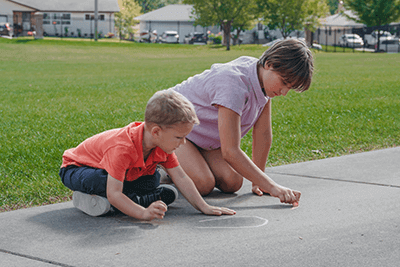 What These Moments Mean
What These Moments Mean
Taken together, these moments tell a powerful story about life at Mounds Park Academy. They show students stepping beyond their comfort zones, lifting one another up, and discovering what they’re capable of. From music rooms and classrooms to robotics labs and collaborative spaces across campus, these quiet wins reflect a culture where effort is valued, curiosity is encouraged, and relationships matter.
These moments are not isolated. They grow out of thoughtful teaching, compassionate leadership, and a community that believes students thrive when they feel known, supported, and challenged. Over time, they build confidence, resilience, and joy in learning—and they stay with students long after the school day ends.
Thank you to our students, educators, coaches, and peers who make these quiet wins possible each day—and to our families for entrusting us with their children and partnering with us in their growth. When we pause to notice and celebrate these moments, we affirm that the small moments matter—and together, they shape each student’s journey at Mounds Park Academy.
Do you have a little moment to share? If so, email communications@moundsparkacademy.org.
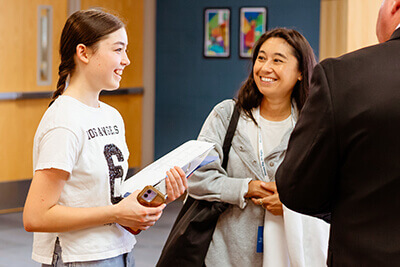 from Natalie Waters Seum, director of enrollment strategy and communication
from Natalie Waters Seum, director of enrollment strategy and communication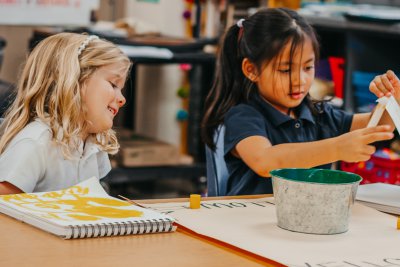

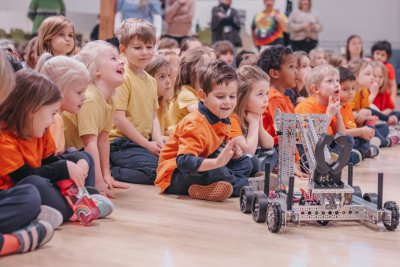
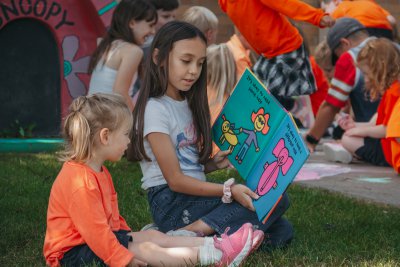
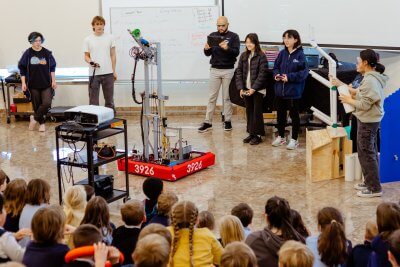
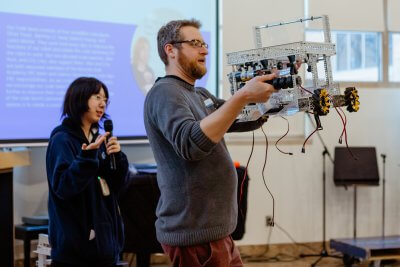
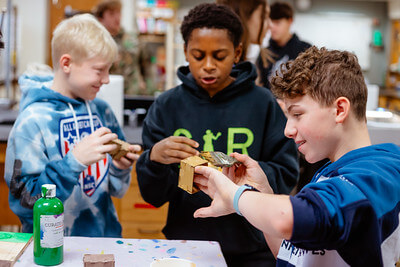 This message is from MPA’s Office of Admission from the December 10, 2025 issue of InsideMPA.
This message is from MPA’s Office of Admission from the December 10, 2025 issue of InsideMPA.  This message is from MPA’s Office of Admission from the November 25, 2025 issue of InsideMPA.
This message is from MPA’s Office of Admission from the November 25, 2025 issue of InsideMPA. 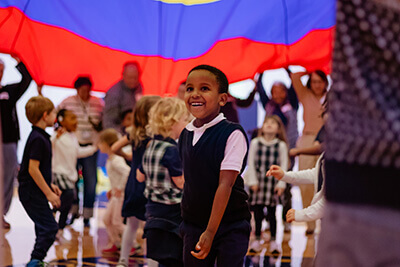 Examine core values when making school-choice decisions
Examine core values when making school-choice decisions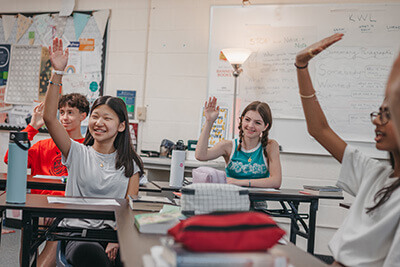 Being seen, heard, and known
Being seen, heard, and known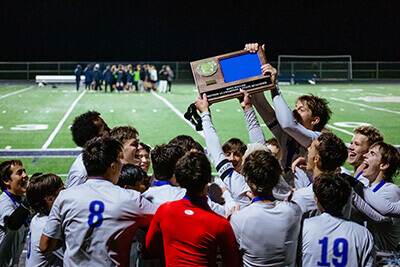
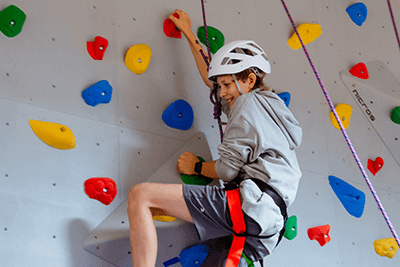 This message is from MPA’s Office of Admission from the October 27, 2025 issue of InsideMPA.
This message is from MPA’s Office of Admission from the October 27, 2025 issue of InsideMPA. 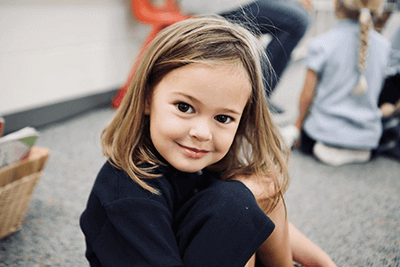 The 2025–26 school year marks the 20th anniversary of PreK at Mounds Park Academy. When our program began in 2005 with just 11 students, we could only imagine the vibrant learning community it would grow into. Twenty years later, we have twice as many students and four dedicated teachers who nurture their learning and care each day. Our PreK classroom is a warm, joyful environment where young children learn through play, inquiry, and exploration.
The 2025–26 school year marks the 20th anniversary of PreK at Mounds Park Academy. When our program began in 2005 with just 11 students, we could only imagine the vibrant learning community it would grow into. Twenty years later, we have twice as many students and four dedicated teachers who nurture their learning and care each day. Our PreK classroom is a warm, joyful environment where young children learn through play, inquiry, and exploration.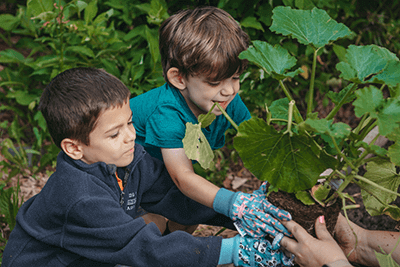 Learning Through Play And Exploration
Learning Through Play And Exploration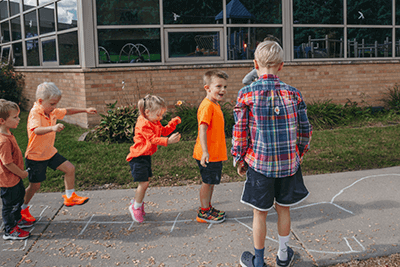 Teacher Maria Smith focuses on the most important parts of the PreK experience. “Learning how to be a part of a group, manage big feelings, navigate the lunchroom, take turns in a game, and persevere through challenges is just as important as learning numbers and letters. At this age, students are learning how school works, and we are here to help set them up for success.”
Teacher Maria Smith focuses on the most important parts of the PreK experience. “Learning how to be a part of a group, manage big feelings, navigate the lunchroom, take turns in a game, and persevere through challenges is just as important as learning numbers and letters. At this age, students are learning how school works, and we are here to help set them up for success.” This message is from MPA’s Office of Admission from the October 8, 2025 issue of InsideMPA.
This message is from MPA’s Office of Admission from the October 8, 2025 issue of InsideMPA.